Relief in Niger Delta as EU, UNICEF support region with WASH projects
Relief came the way of some communities in Nigeria’s Niger Delta region with the commissioning of water and sanitation projects by the European Union (EU) and the United Nations Children Fund (UNICEF) in collaboration with the state governments of the region.
Some of the benefiting communities like Ikot-Esop and Ikot Ukpong in Nsit Atai Local Government in Akwa-Ibom State never had any of such interventions and had never had access to potable water for over three centuries they have existed, according to some chieftains in the communities.
Village Head of Ikot-Esop, Chief Akpan Emmanuel, told journalists who came to see a huge water project donated to his community that “this is the first project of this kind we are having in this village.”
Deputy Village Head, Ikot Ukpong village, Chief Udosen Emmanuel, said “the community remains grateful for “making them have access to safe water for the first time.”
Apart from water, the interventions sensitized benefitting communities on the need to have good toilet facilities. Low-income earning homes were taught how to provide and use a device known as “tippy-tap.” Tippy-tap contains a four-litter gallon of water with a small opening on its lid which sprinkles water out whenever a rope used to connect it from the ground is pressed with the sole of a foot. It is used for washing hands after toilet, and tied to a wood or any other standing device around the toilet.
The interventions started in 2013 and had the EU, UNICEF and governments of states in the region pledging and committing funds which were to be executed by UNICEF in ten local government areas in the region to alleviate the suffering of the people whose agitations have been based on lack of potable water, unemployment among others.
Parties to the projects also intended to raise awareness on sanitation and ensure good toilets are available in homes, and that the people adopt good toilet practices and improved hygiene.
Speaking on the projects which have been commissioned for use in the communities, UNICEF Communications Specialist in Nigeria, Mr. Geoffrey Njoku, said “water is key to child and human survival,” one of the reasons he said the projects were initiated and executed.
Njoku told media experts brought by UNICEF, in collaboration with the Child’s Rights Bureau of the Federal Ministry of Information, to a two-day Media Dialogue on Water, Sanitation and Hygiene in Uyo Akwa-Ibom recently, that government and people must prioritize good hygiene practices and availability of potable water as parts of means to guarantee the well being of the people.
The journalists were also brought to the state to see some of the projects and be further briefed on need for increased sensitization of people and tiers of government in the country on gains of safe water and hygiene practices.
Another WASH Specialist for UNICEF, Mustapha Niang, said available facts showed that 46 million people in the country still engaged in open defecation, and that 57 percent of people in the country have access to good water sources.
He however informed that Nigeria had to increase its efforts on sanitation 20 times to meet SDG target six. He reiterated the need by government and well-meaning individuals to build defecation facilities in public places.
Niang urged people in the country to have a change of attitude on defecating in public places, saying doing so constitutes threats to public health.
A Port-Harcourt (Rivers State) based WASH specialist for UNICEF, Hokoaya Martha, said at the meeting that unlike other states in the region, Bayelsa had peculiar challenges with having access to potable water.
According to her, the water level in the state is too high and there are also problems of iron and manganese contamination. The state, according to her, is plagued with iron and manganese contamination, which she said brings about aesthetic issues which could lead to rejection of water provided for the people.
One of the documents made available by UNICEF at the meeting reads: “The overall objective of the rural component of Niger Delta Support Programme is to mitigate the conflict in the Niger Delta by addressing the main causes of the unrest and violence –bad governance (youth) unemployment, and poor delivery of basic services using WASH intervention programmes as entry point.
“The specific objective is to contribute to strengthening of social bonding and peace building among communities in the project states through local capacity building and provision of access to improved sources of safe drinking water and basic sanitation in ten self-selected local government areas in the project states.”
There are five key objectives under the project which are: to upgrade LGA WASH units to WASH departments and strengthen the capacity of rural water supply and sanitation institutions in the five states to drive and implement sustainable WASH project; to increase access to safe and sustainable water supply services in the rural communities of the self-selected LGAS; and to increase access to improved sanitation and proper hygiene practice in rural communities and schools.
Others are: to institutionalize dialogue among stakeholders, strengthening social bonding and contributing to resolution of conflict situations; and to establish a state-level monitoring and evaluation (M&E) system linked to the National M&E system.
From the project, UNICEF said a total 206,954 additional people gained access to safe water against a target of 543,000. Water facilities constructed/rehabilitated targeted 600 communities.
Key achievement of the projects, the UN agency stated, are triggering of 508 communities through community-led total sanitation approaches (CLTS); 143 communities out of 508 have attained open-defection free (ODF) so far, being 28 percent of communities targeted, while 122 communities “are currently claiming ODF.”
Additional 146, 364 people have gained access to improved latrines through construction of self-sponsored latrines.
35 primary schools were provided with safe water and sanitation facilities (28 schools in Delta reached with hand pump boreholes; 14 with two VIP block latrines each. Pupils in those communities were able to gain access to safe and gender-sensitive WASH facilities UNICEF said.
About author
You might also like
Sanofi signs pact with May & Baker for local drug production
NAFDAC, PSN, NIROPHARM, PMG-MAN, others applaud The National Agency for Food & Drug Administration & Control (NAFDAC) has expressed strong support for the efforts by Sanofi, a multinational healthcare company,
COVID-19: Chevron donates PCR Lab to Delta State
also hands over Surgical Theatre/Consulting Rooms Chevron Nigeria Limited (CNL), operator of the joint venture between the Nigerian National Petroleum Corporation (NNPC) and CNL (NNPC/CNL JV), has donated a Polymerase
Dentists float Foundation
● Canvasses implementation of Oral Health Care Policy Worried by the low level of low oral health care awareness, dental practitioners across the country have set up a Dental Support

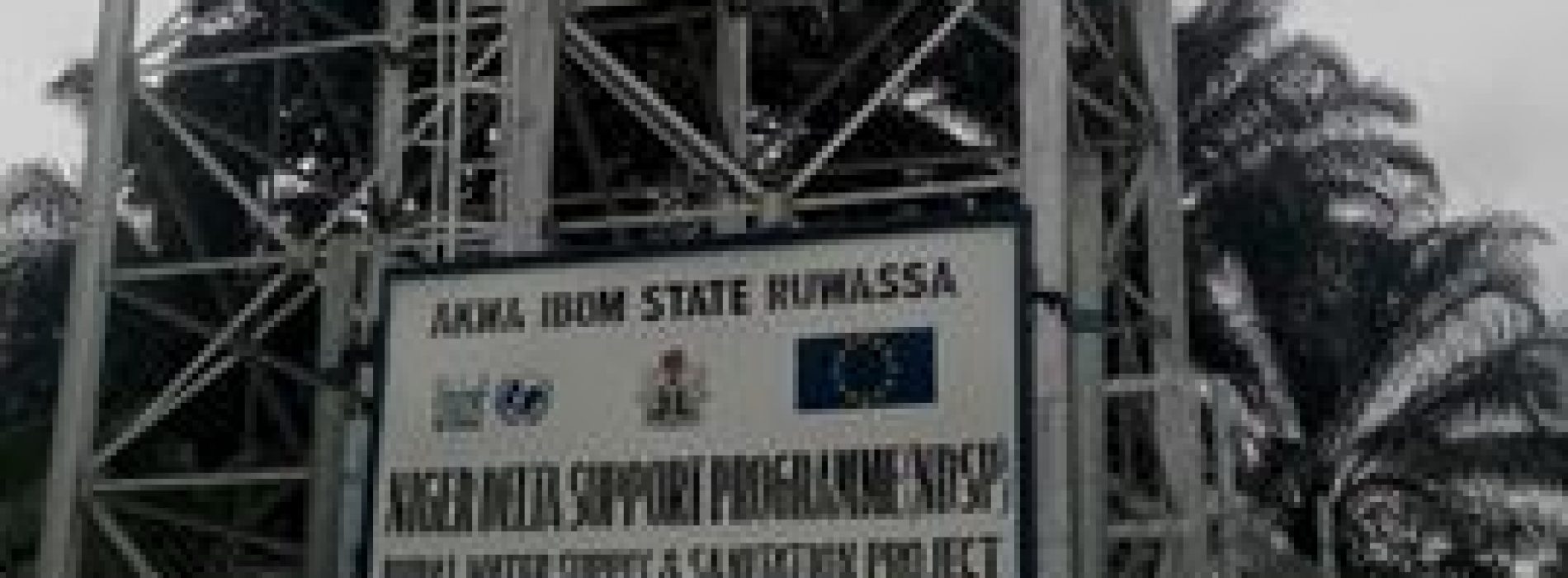
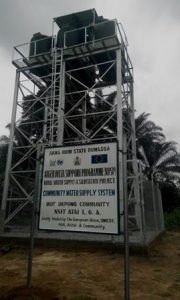
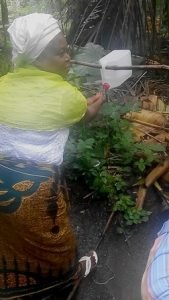
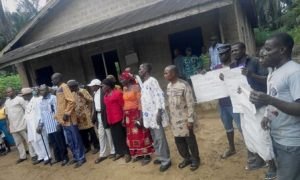
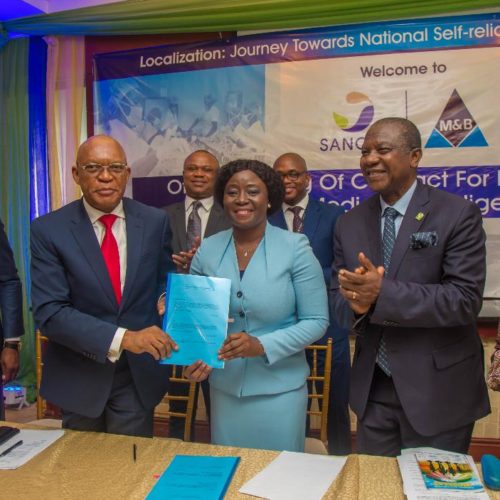
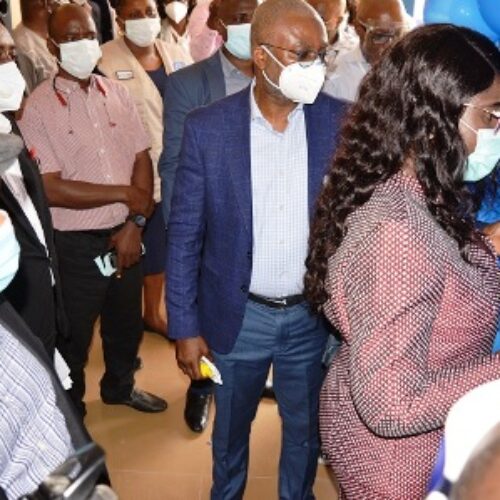


0 Comments
No Comments Yet!
You can be first to comment this post!